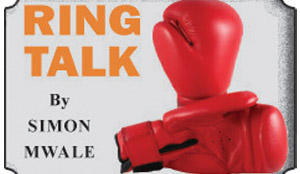 I WAS watching a BBC documentary when suddenly the presenter interrupted the programme to announce breaking news – the passing of the icon Muhammad Ali.
I WAS watching a BBC documentary when suddenly the presenter interrupted the programme to announce breaking news – the passing of the icon Muhammad Ali.
Unbelieving, I tuned to CNN and then Aljazeera to check whether I was not in dreamland. All three outlets confirmed what I did not want to hear. He had died.
Instantly my memory took me 35 years back-February 8, 1971 to be precise – the day Ali lost his challenge for the world heavyweight title held then by LSmokingS Joe Frazier at the Madison Square Garden.
What I recall vividly was the shock, disappointment and frustration that my fellow students and I at Chizongwe Secondary School (now technical) felt at the news. Nobody thought Ali could lose. In fact, it’s totally true to say his loss shook the entire world.
In retrospect, followers of the sport will recall that this was Ali’s first fight following close to four years of inactivity imposed on him by the American government to draft him into the armed forces to fight in the Vietnamese war.
But he refused as a conscientious objector. His refusal cost him dearly; the government wanted to send him to prison for five years, but he won an appeal that led to a lesser punishment- cancellation of his boxing license. The long layoff clearly affected his reflexes, natural abilities and skills.
But the man who told the world ‘I’m the greatest’ went on to prove this claim when he beat Frazier twice with an emphatic 14th round stoppage of an epic encounter-the Thriller in Manilla in their third fight.
Those fights appeared to have prepared him to face the big George Foreman who demolished Frazier to become champion. No one gave Ali a chance against the hard-hitting Foreman in the historic Rumble in the jungle in Zaire in 1974.
But using the rope-a-adope, taking those murderous blows to the body while on the ropes from Foreman for seven brutal rounds tired his opponent before he knocked him out. His single minded focus, dogged determination, unflinching self-belief, resilience and burning desire to win were all it took to achieve the feat.
Remember Ken Norton? He fought and beat Ali on points. What was remarkable about that fight was the incredible stoicism and the endurance by Ali to take great pain. I m sure some of you will recall that Norton broke Ali’s jaw in the second round.
I don’t know whether the rules were lax then, but Ali withstood Nortonts punches all the way to the 12th round. Although he lost the fight, he surprised all with his resilience. He believed in dying a little to achieve his goal.
These days, fights are stopped after a boxer incurs a nasty cut, sometimes even when the boxer is willing to continue.
So as we say farewell to the great Ali, what can we learn from him in addition to his being a civil rights champion who certainly helped Martin Luther King Jnr in the civil rights campaign? First, it is clear that when we set ourselves goals, we should not see any obstacles.
Second, self-belief comes out strongly from Ali’s life because some argued that he was not ‘greatest’ (according to these critics Sugar Ray Robinson was the greatest) his bravado, his passion and brazen showmanship woven into one proved him right.
Sure what can you say about the man who stung like a bee and floated like a butterfly? Or the man who would say in training for a fight, last week I murdered a rock, I injured a stone?
Meanwhile, I commend SuperSport for dedicating a channel in honour of the man who impacted boxing like no other. A man who transcended the sport and as a goodwill ambassador, a man of immense talent. Go well, Champ!
Comments:mwale.simon@yahoo,co.uk 0966755574/0953744074






